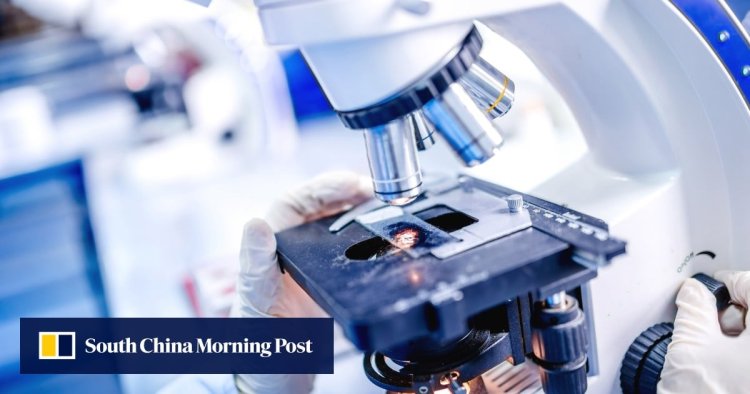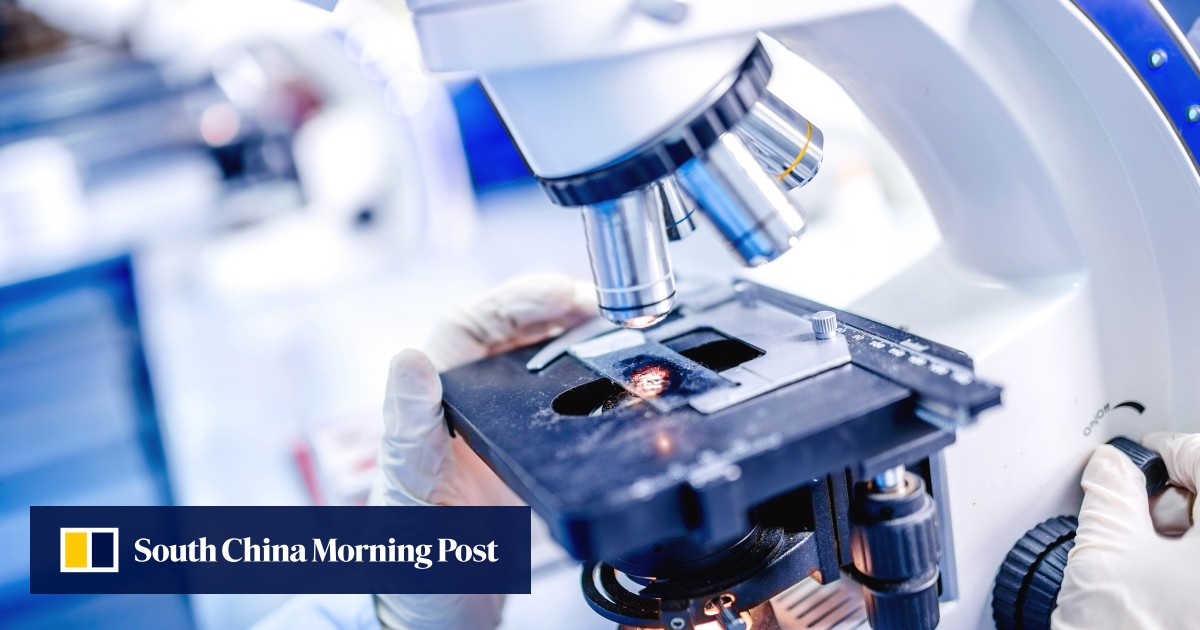China R&D spending ‘high risk, high reward’ for European firms with Ukraine war one of many ‘potential hazards’
2023.04.21 14:30Geopolitics and China’s policies on its technology champions have pushed European companies to rethink their strategies for localising innovation and research in the world’s second-largest economy, a leading foreign business chamber said on Friday.China’s sizeable market, tax incentives for the technology sector and the fast pace at which research results are adopted commercially have attracted European companies to deepen localisation and compete with local rivals, as more than half plan to increase research and development (R&D) spending over the next five years, according to a survey by the European Union Chamber of Commerce in China.But the Ukraine war, tensions across the Taiwan Strait, Beijing’s tech self-reliance push and the fallout from its zero-Covid strategy have undermined long-term prospects in China’s innovation ecosystem, the chamber added.The long-standing issue of poor intellectual property protection for trade secrets, the impact of the US-China tech w


Geopolitics and China’s policies on its technology champions have pushed European companies to rethink their strategies for localising innovation and research in the world’s second-largest economy, a leading foreign business chamber said on Friday.
China’s sizeable market, tax incentives for the technology sector and the fast pace at which research results are adopted commercially have attracted European companies to deepen localisation and compete with local rivals, as more than half plan to increase research and development (R&D) spending over the next five years, according to a survey by the European Union Chamber of Commerce in China.
But the Ukraine war, tensions across the Taiwan Strait, Beijing’s tech self-reliance push and the fallout from its zero-Covid strategy have undermined long-term prospects in China’s innovation ecosystem, the chamber added.
The long-standing issue of poor intellectual property protection for trade secrets, the impact of the US-China tech war and the risks of tougher policies on China by European governments also mean any onshoring strategy is “increasingly high risk, high reward”, it said.
“The reward of localising technology and R&D into China are considerable, but so are the potential hazards,” it said.
The report said 45 per cent of companies surveyed adopted a more conservative strategy of either spending nothing or less than 1 per cent of their annual China revenue on local R&D last year, while 28 per cent adopted a more assertive strategy, spending over 5 per cent.
Around 45 per cent said Russia’s invasion of Ukraine had negatively impacted their confidence about their R&D spending in China.
“The impact that geopolitics is having on the stability of China’s business environment is only expected to worsen,” the report said.
“The speed with which the sustainability of business in Russia disappeared has cast doubts at every level of decision-making in the company’s global operations.
“Several interviewees connected this topic with fears of a conflict in the Taiwan Strait, or of further instability in cross-strait relations, particularly if US government representatives continue direct, high-level diplomatic engagement with Taipei.”
Taiwan stands to lose investment, supply chains, if PLA keeps up drills
The chamber surveyed 107 member companies in November and early December before China removed its coronavirus restrictions and conducted intensive interviews in the following two months.
Beijing has launched multiple rounds of charm offensives after reopening its borders to attract global companies and talent after the restrictive zero-Covid policy had thrown the economy into disarray and undermined its allure for expats.
“The lockdown is still in everybody’s mind,” said chamber president Joerg Wuttke, referring to the two-month lockdown of China’s financial hub of Shanghai in April and May last year.
But despite the policy pivot, the negative impact of zero-Covid would take years to diminish, the chamber warned.
“While it may be possible to now resume R&D personnel exchanges across borders, multiple interviewees are worried that the value proposition of moving or returning to China to do R&D will be tainted for years to come due to the 2022 lockdowns, especially for R&D personnel that have families,” the chamber said.
It also said R&D activities could hinge on whether the technology “fits into the strategic and national goals set by Beijing”.
Beijing is keen to attract foreign R&D, such as machinery and chemicals, to support China’s self-reliance ambitions, as well in non-strategic areas to drive tax revenues and job creation, such as automotive and service sectors.
But foreign players risk being squeezed out of the sectors Beijing deems as strategically important and if it succeeds in cultivating home-grown champions, the chamber added.
China rolls out ‘charm offensive’ for foreign investors, but doubts linger
The chamber said the tech substitution policy has hit European information and communication technology (ICT) companies hard.
“That European ICT firms are facing not only onslaught from Beijing, but are also being undercut by Washington in the tech war, has left them between a rock and hard place”, the chamber added.
The chamber also called on Beijing to take concrete steps to address business concerns to open market access, such as in the area of green transition, and to ensure a level playing field.
Green transition projects focus on areas such as clean energy production, including solar power and offshore wind energy.
“The charm offensive has not translated into actions”, Wuttke added.
The chamber said Beijing’s policies and regulation also created a complex ecosystem for European firms on innovation, with one saying that China’s data regulations have undermined the value of big data analysis at the global level.
Another said its China team has conducted a holistic risk assessment twice a year instead of the previously once every two years, according to the chamber.
Protecting intellectual property is becoming more important, it added, as a majority of European companies have chosen to partner with local private companies and Chinese research agencies.
But they are reluctant to collaborate with the state-owned enterprises out of concern over technology leakage, or with a joint venture partner which may empower a competitor.
“Are we going to help our competitors if we come to China with our technology, or are we going to help ourselves? This is the great question for foreign companies looking at China,” said an unnamed company, according to the report.
What's Your Reaction?

















